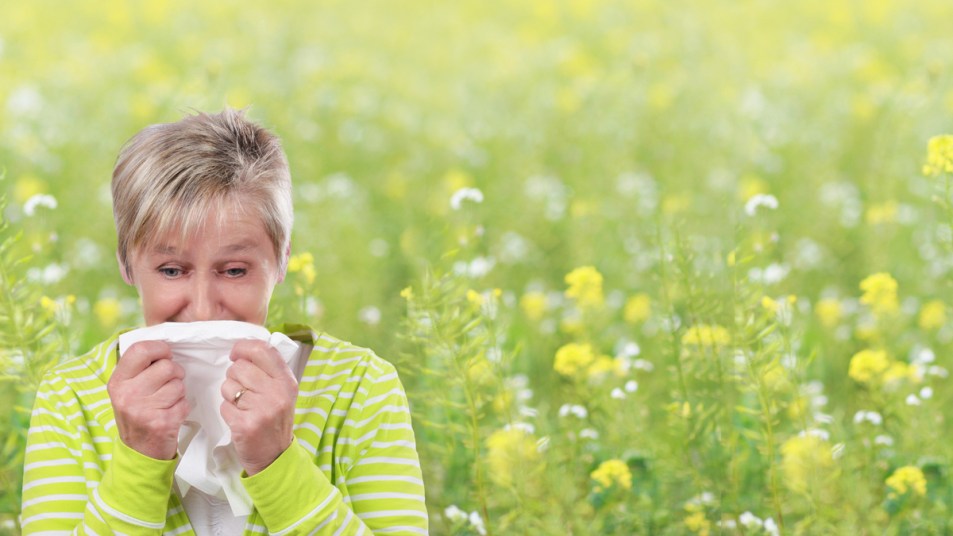Say Goodbye To Hay Fever and Seasonal Allergies with 4 Natural, Science-Supported Remedies
You can substantially reduce your reactions to pollen with these simple fixes.

The sun is shining, birds are singing, and ragweed pollen is in the air, spoiling summer fun for the millions of Americans who sniffle and sneeze as a result. USDA research reveals ragweed season starts up to 20 days earlier than it did just three decades ago, and it lasts as much as 10 days longer — and growing — every year. That’s bad news for hay fever and seasonal allergy sufferers, who also will have to endure a 21% increase in ragweed pollen density since 1990.
But if you’re among the many who suffer itchy, drippy misery each year, there are things you can do to reduce the impact your allergies have on you. Here are the easiest natural remedies for hay fever.
Slip on sunglasses.
Donning a pair of shades every time you head outdoors — even if it’s not sunny — physically shields your eyes, thereby reducing your exposure to irritating pollen. Researcher shows that wearing sunglasses also eases sneezing and runny nose by as much as 36 percent. Experts explain that the eyes and nose are connected by a nerve pathway known as the reflex arc, so protecting your peepers reduces both eye and nasal symptoms.
Sip nettle tea.
Green tea’s grassier-tasting cousin is incredibly refreshing when it’s poured over ice. It’s also an effective defense against hay fever. At least, that’s what findings published in the National Library of Medicine suggest. The scientist’s research showed that drinking three cups of green tea each day can ease hay fever symptoms as effectively as over-the-counter allergy medications. How? It turns out that the herbs in nettle tea contain compounds such as synephrine and osthole that have natural anti-inflammatory and decongestant effects.
Press and release.
A 2014 study found that stimulating acupressure points (areas that brim with pressure-sensitive nerve endings) can alleviate sinus pressure, open up airways and reduce allergy-triggered fatigue substantially. The technique Jennifer Brett, N.D., advises: Place your index fingers on the two acupressure points just alongside the outer base of each nostril. Apply increasing pressure as you inhale deeply, then decrease pressure as you exhale. Repeat for two minutes three times daily.
Toss onions on the grill.
They do more than add flavor to burgers, say British scientists: Onions abound with quercetin, a compound that blunts immune cell release of symptom-triggering histamine by 81%. Not a fan? Apples, grapes, berries and broccoli are other rich sources. Also smart: Supplementing with 500 mg. of quercetin daily.













